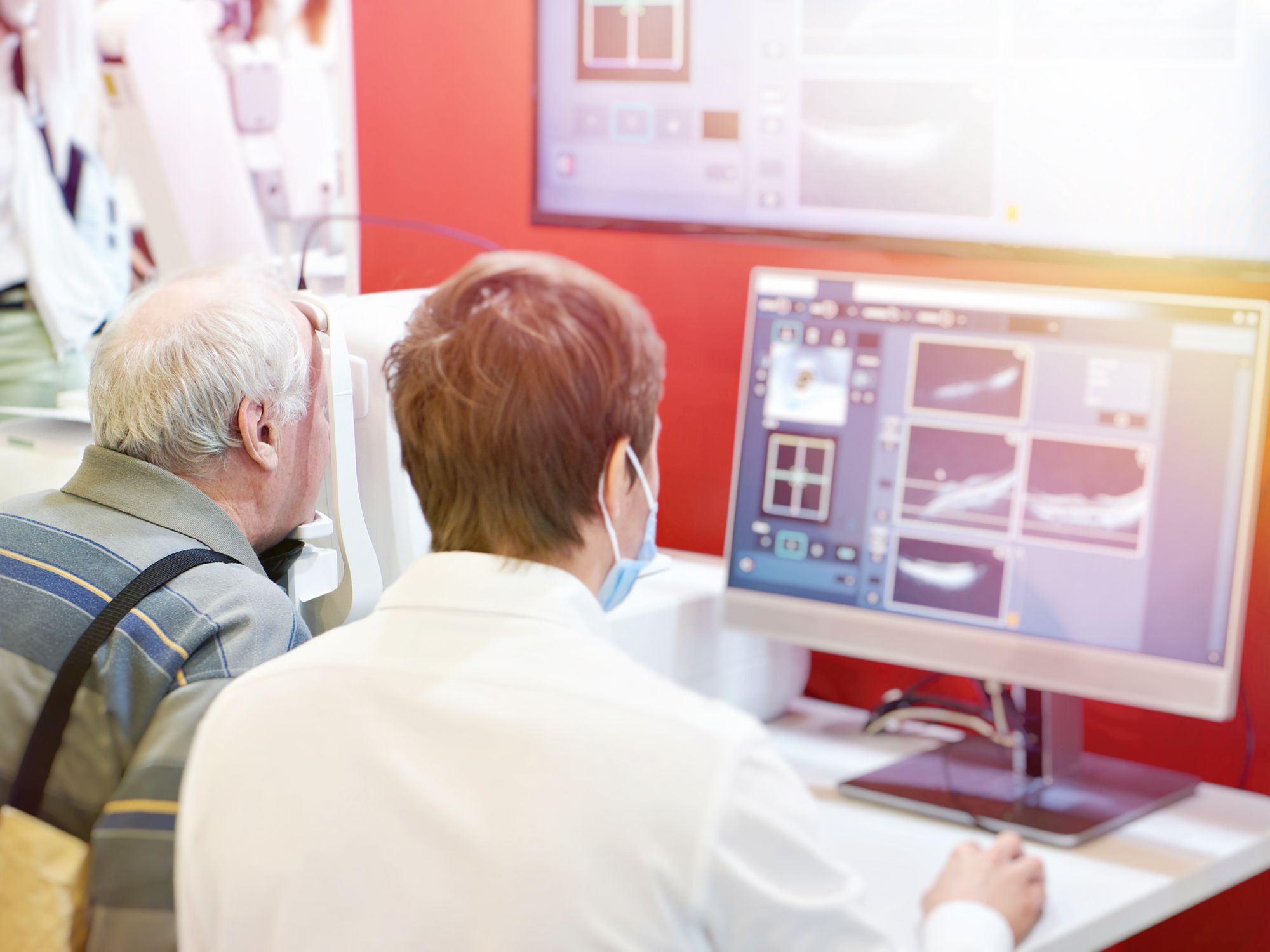
An OCT scan explained
When you visit your OcuPlan optometrist, you'll receive much more than just an eye test. All OcuPlan optometrists have specialist equipment to provide an in-depth picture of the overall health of your eyes. One such example is an OCT scan. In this blog we discuss what an OCT scan is, what to expect and why they are so important.
What is an OCT scan?
OCT stands for optical coherence tomography, and is an advanced eye scan that optometrists use to analyse your eyes in more detail than a standard eye test. It works in a similar way to ultrasound, but instead of sound waves, it uses light waves, and allows optometrists to investigate what is going on underneath the surface of your eye.
OCT scans are used to monitor the health of your eyes and are particularly useful for detecting potentially sight threatening conditions that normally wouldn't show any symptoms until they start to have an impact on your vision such as glaucoma, macular degeneration, and diabetic retinopathy.
How does an OCT scan work?
An OCT scan only lasts a few seconds, but in that short amount of time it takes over 1,000 images of the back of your eye, all the way through to the optic nerve. These images are then used to create a layered image that provides an incredibly accurate picture of your eye.
By attending multiple OCT scans over the years, your optometrist will be able to review any subtle changes in the thickness of the layers. This can indicate signs of eye conditions, making it much easier and quicker to diagnose, treat and manage.
What happens at an OCT scan?
An OCT scan is a very quick and easy process.
Firstly, you'll be asked to sit next to the scanner and place your chin on the chin rest. An optometrist will scan each eye individually with the OCT camera. It's completed in a matter of moments, you'll see a bright flash, this may dazzle you momentarily but it'll pass quickly.
Once complete the optometrist will examine the the 3D images, and discuss the findings with you. This information is then also passed to your eye consultant.
Why is an OCT scan so important?
Some of the most harmful eye diseases are also the most difficult to detect. Glaucoma, macular degeneration, and diabetic retinopathy all have invisible symptoms until they are more advanced. OCT scans play a vital role in diagnosing these conditions early to ensure that you're provided with the right advice and treatment to help save and prolong your eyesight.
If you have any of the conditions mentioned above, you will always be recommended to receive OCT scans regularly. Your consultant or optician will analyse each one to evaluate if there have been any changes since the last. They will then offer advice based on any changes.
Glaucoma, macular degeneration, and diabetic retinopathy are all hereditary, therefore we always recommend that family members of those who suffer from these conditions also receive an OCT scan early and regularly to see if there are any signs of the conditions forming.
OcuPlan only partner with optometrists who have the necessary specialist equipment to carry out OCT scans and other tests to monitor the health of your eyes. We provide affordable private eye care to give you ultimate peace of mind. To learn more about OcuPlan or to find a local optometrist who can carry out your OCT scan, click here
About OcuPlan
OcuPlan offers the gold standard of clinical care for patients with long-term eye conditions to help minimise the risk of sight loss.